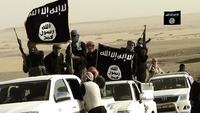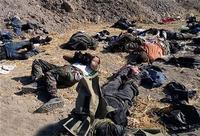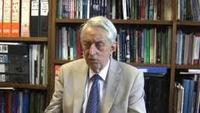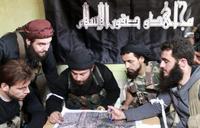-
Why Western boots should stay out of Iraq and Syria

The main reason why we should ignore the growing calls in the United States, Canada and Australia for Western “boots on ground” — meaning ground troops — to fight and destroy the Islamic State (IS) is this: In Iraq and Syria right now there is no alternative group that could fill the void created by a defeated IS. So even if we could topple IS, who would govern the liberated lands? One of the key lessons we learnt from the Afghanistan and Iraq wars is that military forays cannot succeed without a political solution. Attempting to create such a political solution only after the fact is not something that the world has proven adept at. In the case of IS, there is currently no clear and viable political endgame. So as hard as it might be to accept for some, if defeating IS is the goal, the best solution is likely to be isolate the militants and work to weaken them from within in Iraq – this is what the United States did so successfully in 2006 with the same Sunni groups — while adopting a realpolitik approach to the return of Bashar al-Assad in Syria.
-
-
Four arrested in London in plot to behead people on city streets

Officers from the Metropolitan Police counterterrorism unit early yesterday arrested four young men in London over a suspected terrorist plot to grab people on the streets of London and behead them. One of the four arrested was said to have links to Syria and Islamic State (ISIS). Security analysts have said that ISIS would likely seek to retaliate against the United Kingdom in response to British fighter planes joining the U.S. and Arab states in bombing raids on ISIS targets in Iraq.
-
-
Anti-terrorism plan must tackle “allies” who also fuel radicalism
The coalition of nations stitched together by the United States in response to the developing threat of Islamic State is overlooking the sources of radicalism in the region. This plan not only has nothing to say about these sponsors of terrorism but even empowers fundamentalist groups by forging alliances with them. The U.S.-led alliance includes Saudi Arabia and Qatar. Both countries have been playing counter-productive roles by supporting regional and global Salafi Jihadi movements for a long time. They persist in provoking sectarian strife throughout the region. The emergence of Islamic State cannot be understood without studying its Salafist roots in Saudi Arabia and the financial and media support that has flowed from Qatar. Fighting IS while remaining blind to the sources of radicalism in the region will ultimately be unsuccessful. The only long-term solution is to tackle the source of the problem. This plan must include clear and realistic agendas to reform the education systems of countries in the region, evaluate these U.S. allies’ democratic status, and pressure them to improve their records.
-
-
Is it fair to blame the West for trouble in the Middle East?
For at least a decade, attempts to understand why some young Muslims living in Western countries turn to violence in the name of religion have raised questions about Western foreign policy in the Middle East. Many blame the United States’ foreign policy. The Islamic State uses anger and grievance against Western intervention as a powerful recruiting tool. There is some truth to the argument that anger at foreign policy and the West’s engagement with the Arab world is at the heart of Muslim anger, as well as a driver of radicalization among Muslim youth, but the current state of affairs in the Middle East is not simply an outcome of Western intervention and the U.S.-led invasion of Iraq in 2003. Western foreign policy in the region has no doubt influenced the current situation, but the conditions for the spread of militant Islamism have come from attempts to deal with the crisis within: a crisis that is as much political in nature as it is religious.
-
-
Assad retains secret caches of chemical weapons: Israeli intelligence
Despite committing to dismantle and give up its chemical weapons – Syria was in possession of the world’s largest chemical weapons stock — President Bashar al-Assad’s regime still maintains a “residual” chemical weapons capacity, consisting of a few tons of the proscribed materials. Israel’s intelligence community has concluded that the Assad regime has decided to keep this reduced, but still formidable, chemical weapons capability, and has successfully concealed it from the inspectors of the UN chemical weapons watchdog who, a few weeks ago, have declared the chemical disarmament of Syria to be officially complete. Israeli defense officials believe that these sarin gas weapons would likely be deployed if the Assad regime faced an imminent threat to its survival. The Syrian regime is continuing to use chemical weapons which were not covered by the U.S.-Russian chemical weapons disarmament agreement, especially chlorine gas.
-
-
Cost of U.S. war on ISIS reaches $780 million
The cost of the war against the Islamic State (ISIS) Islamist group has totaled at least $780 million, according to a new estimate, as U.S. warplanes and drones continued to strike Isis positions in Iraq and Syria on Monday and Tuesday. Defense Secretary Chuck Hagel said on Friday that the U.S. military is spending up to $10 million a day and will likely request more money from Congress to fund the war. The attacks on ISIS began 8 August, and before they were expanded to include targets in Syria, the Pentagon estimated the daily war costs at $7.5 million.
-
-
Obama: U.S. intelligence underestimated ISIS strength, overestimated Iraqi military's resilience

President Barack Obama on Sunday said that the U.S. intelligence community had underestimated Islamic State (ISIS) strength and level of activity inside Syria, which has become “ground zero” for jihadist terrorists worldwide, while overestimating the ability of the Iraqi army to fight such militant groups. Obama’s admission that ISIS succeeded in setting up its bases in Syria and Iraq without being noticed by U.S. intelligence may embolden Republican hawks such Senators John McCain (R-Arizona) and Lindsey Graham (R-South Carolina) who have been complaining for months that the administration was being too passive in its approach to the Syrian civil war.
-
-
ISIS, al-Nusra reconcile as Syria air strikes continue

Under continuing strikes by U.S. and coalition air forces, ISIS moved toward a new alliance with Syria’s largest al-Qaeda-affiliated group. Jabhat al-Nusra, which has been at odds with ISIS for more than a year now, was also subjected to U.S. air strikes which killed scores of the group’s members. Many al-Nusra units in northern Syria now appear to have reconciled with ISIS, following months of bitter clashes between the two groups.
-
-
New DOJ pilot program aims to deter Americans from joining terrorist groups
Boston, Los Angeles, and Minneapolis will host the Justice Department’s (DOJ) pilot program aimed at deterring Americans from joining terrorists groups, particularly those fighting in Syria and Iraq under the Islamic State (IS) and Somalia under al-Qaeda-affiliated al-Shabaab. The program will rely on prevention and intervention initiatives.
-
-
U.S. strategy for fighting ISIS includes outreach to Muslims-American communities
The White House is planning a summit in October to consider domestic extremism – a summit which will include Muslim faith-based organizations, mental health providers, social services groups, and youth-support organizations. The leaders of U.S. security services agree that Muslim-American communities should be seen as the “front lines” against the efforts of terror groups to recruit impressionable youth.
-
-
Tension between humanitarian ideals, fear of terrorism in European asylum decisions
New research has found that European states that experienced a terrorist attack on their own soil since 1980 were less likely to grant asylum to refugees. The study also found, however, that on the whole, concerns over terrorism in Europe have not eroded underpinnings of the Geneva Convention’s principles regarding asylum admission.
-
-
Better regional coordination for port security
In the days following the 9/11 terrorist attacks, first responders in the Northeast were suddenly responsible for monitoring potential targets, including a military base, nuclear power plants, and a deep water port. Emergency teams soon found out that they were ill-equipped to coordinate with one another. That realization prompted better organization among regional first responders.
-
-
A first: Jury finds bank guilty of financing terrorism
In a major development on the terrorism financing front, a U.S. jury found Arab Bank Plc liable for providing material support to Hamas and ordered the bank to compensate nearly 300 Americans who are either victims or relatives of victims of at least two dozen attacks tied to Hamas in Israel and the Palestinian territories.
-
-
U.S. starts air strikes on Syria as shadowy new threat emerges

The United States has commenced major air operations against the Islamic State (IS) in Syria. Why has the United States suddenly expanded the air war by going for the heart of the Islamic State’s power base in Raqqa, Syria? The answer almost certainly lies with what has happened in the past six weeks in the ongoing air war in Iraq. There, more than 190 air strikes on close to 250 targets have done little more than blunt some of IS’s recent advances, and have conspicuously failed to stop the group from making gains elsewhere. More generally, the new government of Prime Minister Haider al-Abadi has so far failed to convince key Sunni clans in western and north-western Iraq that it will run a more inclusive regime; as a result, clan leaders are far too suspicious to work alongside government forces. In the short term, Washington is presenting this rapidly accelerating war as a decisive action to permanently cripple IS. It may well look like a success at first — but that will almost certainly be highly misleading. In reality, the Third Iraq War, now extended into Syria, is merely in its very early stages.
-
-
Al-Qaeda-affiliated Khorasan group more dangerous than ISIS: Analysts

As the the United States begins to counter military advances made by the Islamic State (IS) in northern Iraq and Syria, security analysts are concerned about other militant groups which could fill the power vacuum once ISIS shows signs of retreat. ISIS currently lacks the capability directly to attack the United States, and its threat is mostly regional disruption, analysts say, but another militant group in Syria – called the Khorasan group — does have ambitions to attack Western countries at home.
-
More headlines
The long view
How Male Grievance Fuels Radicalization and Extremist Violence
Social extremism is evolving in reach and form. While traditional racial supremacy ideologies remain, contemporary movements are now often fueled by something more personal and emotionally resonant: male grievance.
